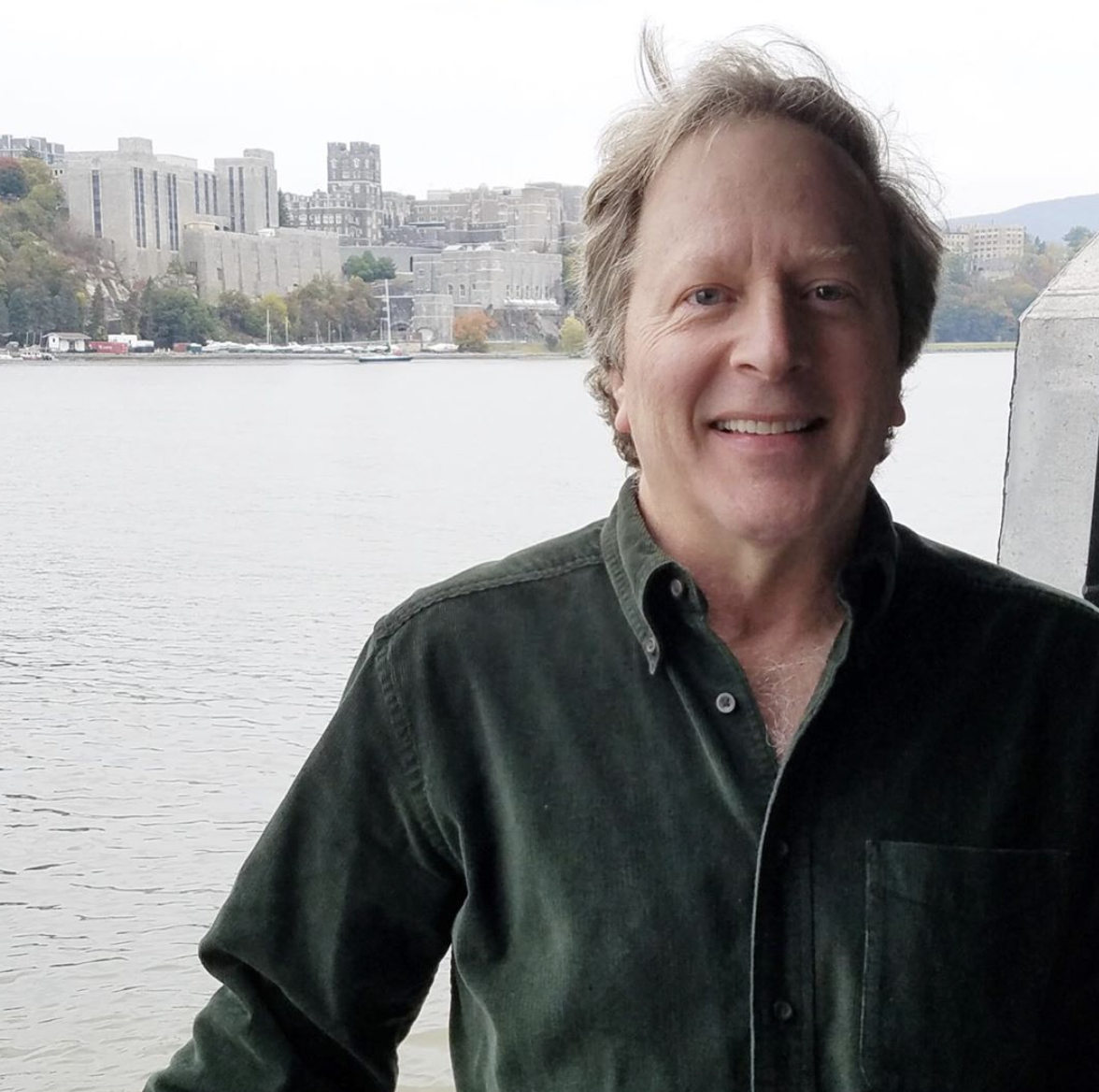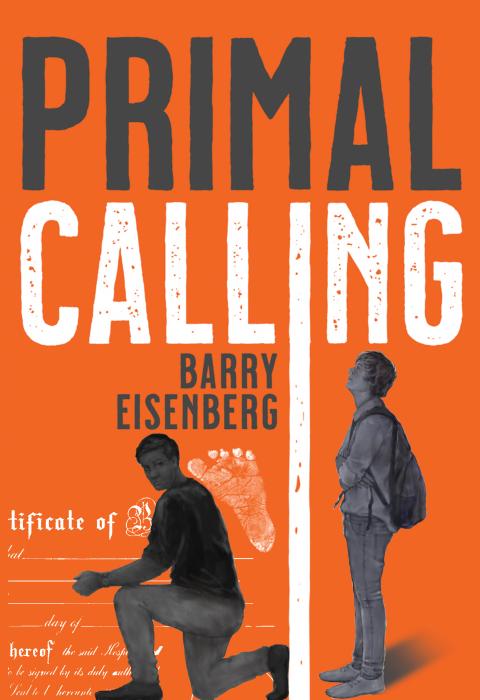A Drink of Water
I had just finished giving a presentation to students at the SUNY College of Optometry in New York City and I went to say hello to a colleague who is a member of the faculty and service chief of one of the college’s clinics.
As I got into the elevator, a family entered just behind me – a husband and wife and their two young boys, who looked to be about six and nine years old. The boys were wearing identical heavy, black-framed glasses with lenses that had a deep tint and prism-like appearance. The whole family had such a pleasant vibe about them, and the parents and I exchanged a friendly smile.
We got off on the same floor. After checking in with the clinic receptionist, the family took seats in the waiting area. I then asked the receptionist to notify my colleague that I was there before taking a seat just across from the family.
The boys were dressed formally in button down shirts and dark pants. After a moment or two, the older boy asked his parents if he could go to the small, nearby play area that had a computer set up for kids. I was struck by how polite and respectful their exchange was, filled with “please” and “thank you.” The mom’s tone was loving, and she smiled as she gave her approval.
The younger boy sat with his parents, talking about something that had happened at school.
A doctor soon emerged from a hallway and walked over to greet the parents.
“So nice to see you,” he said affably. He shook their hands, then turned his attention to the younger boy and asked how he was.
The boy replied, “I am fine, and how are you?”
I was taken by how the boy responded. He was only about six, and yet the expectant way he looked at the doctor suggested that he was waiting for an answer to a question we tend to treat as an icebreaking formality. The boy maintained his eye contact while the doctor answered that he was fine, adding “Thank you for asking.” The boy’s thoughtfulness was striking, his courteous manner so endearing.
The doctor spotted the older boy at the computer table in the corner. That boy, now noticing the doctor, smiled and walked over to him, extending his hand for a handshake. So mature! They, too, exchanged the same “Hi, how are you” pleasantries.
The doctor turned toward the parents and said, “The procedure should take about two hours. Feel free to go to the cafeteria. We will call you as soon as they’re finished.”
They thanked him and replied that they preferred to remain in the waiting area.
The parents hugged their sons and offered warm reassurance to each. The doctor smiled and, in turn, assured the parents that all would go well. He then walked hand-in-hand with the boys as they headed down the hall to the treatment rooms.
As they neared a water fountain, the older boy asked, “May I please have a drink before the procedure?”
The doctor smiled, “Of course!” and asked the younger boy if he would like a drink as well.
“No, thank you,” he politely declined.
I was mesmerized as the three then turned the corner and were out of sight.
I looked toward the parents and saw that they were holding hands.
That entire episode took only 4 or 5 minutes. A minute later my colleague came to fetch me.
I couldn’t stop thinking about those sweet little boys and their adoring parents, concealing their concern until the boys were safely out of view. Still, I hesitated to write about what I saw that day. After all, how compelling could a few paragraphs about a polite exchange be, especially involving children? No drama. No bruised feelings. Nothing earthshattering. Behavior completely free of controversy, not a wisp of noteworthiness.
But those few minutes have stayed with me. I’ve been replaying the interaction over and over in my mind, coming to see the moment as poignantly refreshing.
Of course, I know nothing about that family other than what I observed in the space of less than five minutes. I had no real insight into how the two boys got to be so appealingly well-mannered. But what I saw in those few seemingly unremarkable moments struck a chord.
I surely surmised that none of this was worry-free for the parents – their uneasy glances at one another as the boys disappeared down the hall and around the bend was a glaring giveaway.
But despite the eye condition, the boys seemed cheerful. What’s more, they seemed grateful. Somehow, instilled in them was a respect and appreciation for others. It might not be uncommon for someone of their ages and predicament to demand the focus of the interaction, manipulating the conversational energy toward themselves. But there was none of that.
I thought about what must it be like for them, watching the world around them take eyesight for granted. Would it not be out of the question for someone in their shoes to surrender to self-pity? Of course, this was my own projection. Far from feeling sorry for themselves, they exuded awareness of others, apparently having learned that being respectful is not a means to a desired end, not currency in a transaction, but a virtue practiced without expectation.
My nephew, a physician, and his wife, a nurse practitioner, live in Texas with their three sons, ages six, twelve, and fifteen. Like the two boys in the optometry clinic, these kids are also incredibly courteous, always showing interest in others. My nephew recently shared that during dinner each night he and his wife ask their sons what they were grateful for that day. He said that they encourage their sons to focus on simple things that they might otherwise take for granted if not prompted, like being grateful for spending the extra time studying because it paid off with a good grade, or that a friend who was out sick was back in school and feeling better.
That sounded so wonderful to me. In the first example they are thinking about the effort that went into the test, not just the outcome. It’s more about trying than succeeding. I suspect the more one thinks that way, the less apt a feeling of entitlement would seep into their self-image.
And the second example means they are focused on someone else’s welfare. Their thoughts, feelings, and daily experiences are shared in a family that models and reinforces giving and helping others as a lifestyle.
When I think about my fifteen-year-old great nephew asking me how our new house was coming along, or when I watched those two young boys in the clinic behaving so respectfully, I am reminded that being considerate without expecting something in return is not a simple matter of rote gentility. Rather, it is the lexicon of civility, the groundwork of empathy, the raw material of kindness and connection.
I can’t escape wondering why those boys made such an impression on me that day in the optometry clinic. Perhaps I needed some prodding for why we should feel hopeful. It seems like every time I watch the news, I can easily lapse into frustration, angst, or cynicism. I know I am not alone. But those two boys, whose names and destinies I’ll never know, were, through their thoughtfulness, a beautiful reminder of the better part of the human spirit, the one that’s sometimes difficult to dial into above all the noise.
But even more, and transcending the discordancy of these times, there is something distinctively invigorating about observing selflessness that is at once so ingrained yet so innocent, residing just at the intersection of being seasoned and pure.
I imagine that wherever life takes them, even if they make a big mark on the world, it may not compare to the gigantic marks they will make in the seemingly tiniest of goodhearted ways on each person who has the good fortune to happen into their lives.
While I don’t want to make more of what I observed that day, it certainly shouldn't be diminished or trivialized. Reflecting on the boys’ appreciation for what they do have, rather than exhibiting greed because it’s not enough or bitterness for what they lack, I am grateful to them for reminding me once again of the power of humility.

